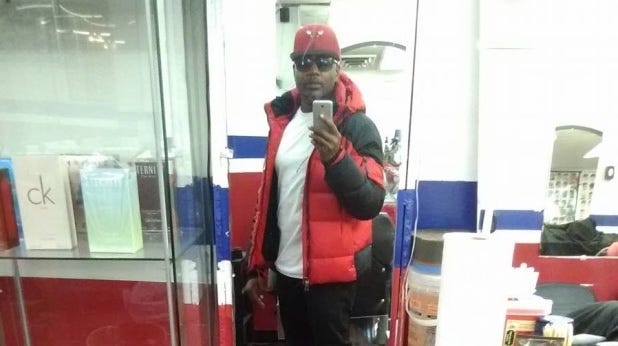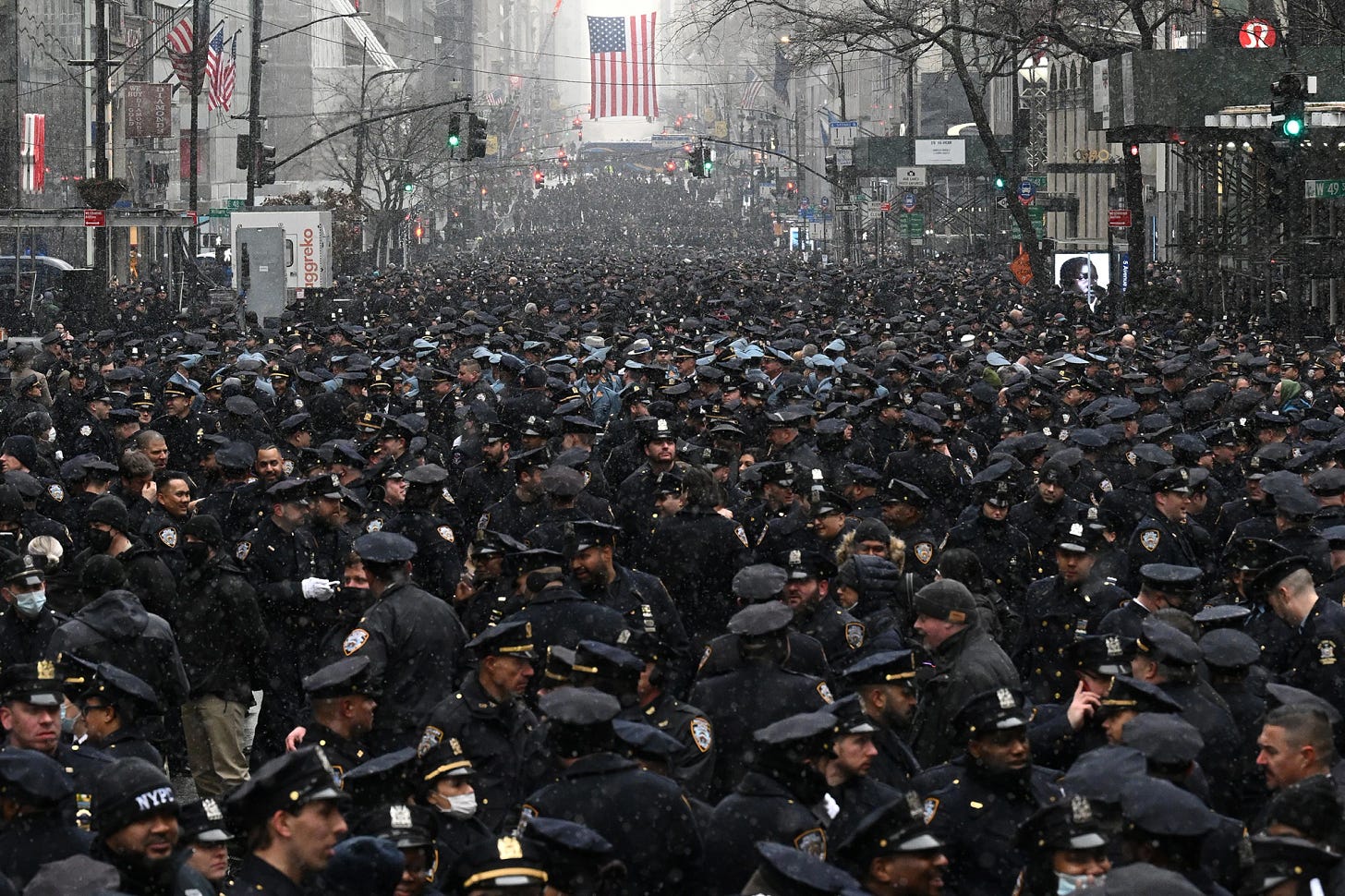Police officers turned out by the (tens of?) thousands for the funeral of Jason Rivera, the 22 year old NYPD officer (promoted posthumously to Detective First-Grade) who was killed (along with his partner Wilbert Mora), while responding to a domestic disturbance call. Lashawn McNeil reportedly ambushed the officers using a handgun he reported purchased illegally in Baltimore, and was debarred from possessing due to his criminal record, before being shot dead by a third officer.
Kristin Richardson, a City Council member (and Democratic Socialist), created outrage by extending her condolences to the families of the officers... and to the family of the shooter in the same breath. McNeil, 47, whose mother called 911 over a dispute she and he were having, had a criminal record going back to his early 20s, was on parole following a felony conviction, and therefore was not permitted by law to possess any sort of firearm. It's hard to parse how a politician would think to combine her public condolences for two people (of color, to boot) legitimately serving their community with those for their murderer's family.
Unless we recognize a couple recurring themes.
First, and foremost, is the subordination of individuals to causes. Richardson had to shoehorn her social justice bona fides in, with "Lives lost due to broken public safety & mental health systems that spare nobody. Harlem stands with the families of the fallen and we will not stop fighting for a safer world for all." That her side of the aisle is the proximate cause of the broken systems is neither here nor there, of course, irrelevant to the opportunity to grandstand.
Second, is the defense of the worst members of the identity groups they champion. This isn't limited to the progressive Left, though their dismissal of individuality makes them more apt to do so.
Criminal justice reforms haven't focused on protecting the wrongly accused or the unjustly-rights-violated so much as on excusing the transgressions of the worst, as if there are no bad people out there. From bail reforms to non-prosecution of turnstile jumping and shoplifting to correlating prosecution with actual harm rather than potential harm (if you avoid getting stabbed, your attacker gets kid gloves?), legislators' actions actually hurt the good and honest members of the communities they claim to stand for.
Unions, especially public-sector unions, stand in the of disciplining or dismissing the worst members in their ranks. Why does it take two years to fire a bad NYCity school teacher? It even plagues policing:
No one hates bad cops more than good cops. -- Seattle police chief Carmen Best
Derek Chauvin, whose killing of George Floyd kicked off the wave of "reform" that has mostly amounted to leniency for and ignoring of actual criminals rather than the (usually government-created) issues that create friction between police and communities, should have been booted for previous misdeeds.
That incident, which offered a small but genuine window (I've blogged extensively about how it only took five weeks for the cynically power- and money-hungry to corrupt the moment and movement), produced instead a cascade of bad ideas that quite arguably set the stage for the murder of Officers Rivera and Mora, by all accounts two good cops and upstanding public servants.
Politicians could have scrubbed the books of the nuisance laws they use to treat the poor as revenue sources, or they could have stopped sending cops to enforce those laws. They could have worked with police departments to cull out the truly bad eggs and thus make things better and safer for all the good cops and the communities they serve. They could have written laws to better protect poor and minority communities from the criminal predators that feast on them.
Instead, they sent a message, both legislatively and procedurally, that policing itself was going to be curtailed, that low level criminality was going to be blamed on "structural racism" rather than on the individuals themselves, and that bad actors would be given repeated free passes. The focus was on defending and excusing the worst, rather than disassociating them from their identity groups (upon whom they preyed, ironically) so that everyone else could get along better.
Thus we get the degradation of law and order in our big cities.
Thus we get the emboldening of criminals like Lashawn Mcneil, whose cold-blooded ambush murder of two men who did nothing to deserve it deserves to be blamed on those who paint all cops as evil as well as on him.
The ultimate power in all this lies with the elected. They write the laws, they dictate the policies, they choose what's to be focused on. When the rights of good citizens are subordinated to the worst among us by those who'd rather defend and excuse the latter than protect the former, more and more bad things will happen.





